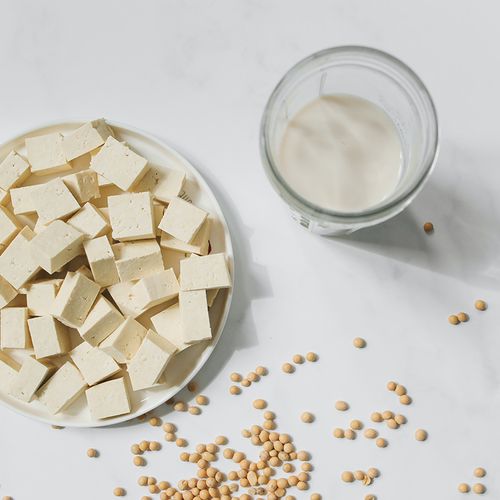Regular, moderate consumption of soy foods can help lower the risk for death and cancer recurrence in women who've had breast cancer, new research shows.
What's more, the association between soy and a reduced risk of death held true even for women with estrogen receptor-positive cancers and women taking the breast cancer medication tamoxifen (Nolvadex), according to the study published in The Journal of the American Medical Association.
"We found that women with a history of breast cancer who consumed moderate amounts of soy food were doing better in terms of prognosis. They had reduced mortality and reduced recurrence," said study author Xiao Ou Shu, MD, PhD, a professor of medicine and a cancer epidemiologist at Vanderbilt University Medical Center in Nashville, Tennessee.
Soy’s Effect On Estrogen
There has been some concern that soy might increase the risk of breast cancer or worsen the prognosis for women already diagnosed with the disease because soy is what's known as a phytoestrogen. That means that it can act like a weak form of estrogen in the body.
However, it appears those concerns may have been unfounded because Dr. Shu and her colleagues found that soy actually reduces the availability of naturally occurring estrogen by binding to its receptors.
"In our study, we found that soy food has a very similar effect to tamoxifen," said Dr. Shu. Tamoxifen is a drug that blocks the action of estrogen in the body, which can be helpful for treating cancers that are fueled by estrogen.
The Study
Dr. Shu's study included just over 5,000 Chinese women who had been previously diag. nosed with breast cancer between 2002 and 2006. The women were aged 20 to 75, with the majority of women between the ages of 40 and 60 at the time of diagnosis.
The researchers collected information on cancer diagnosis and treatment, lifestyle factors (including diet) and disease progression at six months after diagnosis, and then again at 18, 36 and 60 months after diagnosis.
Women who had the highest intake of soy (more than 15.3 grams (gl a day) had a 29% reduced risk for death and a 32% decrease in the risk for cancer recurrence compared with those who ate less than 5.3 g of soy per day.
"There was a linear response, and we found the higher the intake, the lower the mortality, up to 11 grams of soy protein," Dr. Shu said, adding that after 11 g daily the benefit leveled off but didn't decline.
Eleven grams of soy translates to about one-fourth of a cup of tofu each day, she said.
Natural Vs. Processed Soy
Both Dr. Shu and Gina Villani, MD, chief of hematology/oncology at The Brooklyn Hospital Center in New York City, said it's important to note that Chinese women tend to get their soy from natural sources, such as tofu, edamame or unsweetened soy milk, instead of the processed types of soy foods that many Americans eat, such as sweetened, flavored soy milk or soy-based protein bars.
"The take-home lesson is that whole foods are what we need to eat more of," said Dr. Villani. "Try to stay away from the processed stuff. Don't bulk up on soy milk or soy candy bars."
Dr. Shu also pointed out that Chinese women might be replacing unhealthier food choices, such as red meat, with soy. In an accompanying editorial in the same issue of the journal, experts from the US National Cancer Institute noted that the average daily soy intake for people living in China makes up 10% or more of their daily protein intake.
Both Dr. Shu and Dr. Villani advise against loading up on soy supplements, as these haven't been proven to be beneficial, and Dr. Villani said it's unclear if such high levels of soy could cause harm.
And, Dr. Villani added, "supplements don't replace food. We haven't even begun to understand the interactions between nutrients in food and the body. Soy as a bean may react different than soy from a candy bar in the body."
"Soy food intake has been shown to reduce the risk of breast cancer, and it may have cardiovascular benefit, so overall, whether or not you have cancer, soy could be very beneficial to you and could become an important component of a healthy diet," Dr. Shu said. "But try to get it in natural sources, not from processed food."
